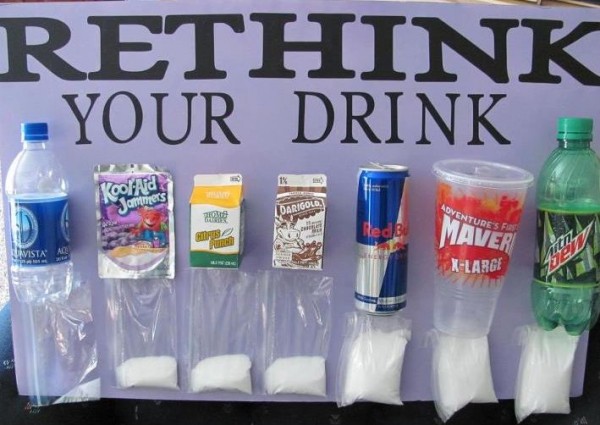By Arthur Dominic J. Villasanta , | April 20, 2017

A lot of sugar.
People who more frequently consume sugary beverages such as sodas and fruit juices are more likely to have poorer memory, smaller overall brain volumes and smaller hippocampal volumes -- an area of the brain important for memory.
Researchers also found that people who drank diet soda daily were almost three times as likely to develop stroke and dementia when compared to those who didn't consume diet soda. These findings appear separately in the journals Alzheimer's & Dementia and the journal Stroke.
Like Us on Facebook
"Our findings indicate an association between higher sugary beverage intake and brain atrophy, including lower brain volume and poorer memory," said corresponding author Matthew Pase, PhD, fellow in the department of neurology at Boston University School of Medicine (BUSM).
"We also found that people drinking diet soda daily were almost three times as likely to develop stroke and dementia. This included a higher risk of ischemic stroke, where blood vessels in the brain become obstructed and Alzheimer's disease dementia, the most common form of dementia," he said.
Excess sugar is known to have adverse effects on health. Diet soft drinks are often touted as a healthier alternative to regular soda.
Sugar and artificially-sweetened beverage consumption have been linked to cardiometabolic risk factors, which increases the risk of cerebrovascular disease and dementia.
In these studies, some 4,000 participants over the age of 30 from the community-based Family Health Services were examined using Magnetic Resonance Imaging (MRI) and cognitive testing to measure the relationship between beverage intake and brain volumes as well as thinking and memory.
Researchers then monitored 2,888 participants age 45 and over for the development of a stroke and 1,484 participants age 60 and older for dementia for 10 years.
Researchers noted preexisting conditions such as cardiovascular disease, diabetes and high blood pressure did not completely explain their findings.
For example, people who more frequently consumed diet soda were also more likely to be diabetic, which is thought to increase the risk of dementia. Even after excluding diabetics from the study, however, diet soda consumption was still associated with the risk of dementia.
-
Use of Coronavirus Pandemic Drones Raises Privacy Concerns: Drones Spread Fear, Local Officials Say

-
Coronavirus Hampers The Delivery Of Lockheed Martin F-35 Stealth Fighters For 2020

-
Instagram Speeds Up Plans to Add Account Memorialization Feature Due to COVID-19 Deaths

-
NASA: Perseverance Plans to Bring 'Mars Rock' to Earth in 2031

-
600 Dead And 3,000 In The Hospital as Iranians Believed Drinking High-Concentrations of Alcohol Can Cure The Coronavirus

-
600 Dead And 3,000 In The Hospital as Iranians Believed Drinking High-Concentrations of Alcohol Can Cure The Coronavirus

-
COVID-19: Doctors, Nurses Use Virtual Reality to Learn New Skills in Treating Coronavirus Patients









